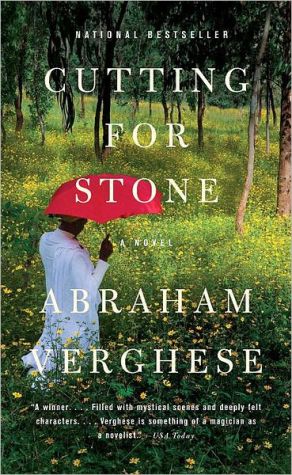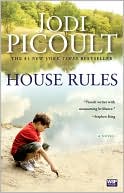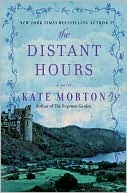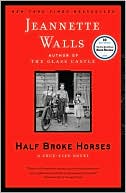Red River
From the author of the New York Times bestseller Cane River comes the paperback debut of an epic work of fiction that tells the dramatic, intertwining story of two families and their struggles to make a place for themselves in a country deeply divided in the aftermath of the Civil War.
Search in google:
They are men whose lives began in slavery, who weathered the Civil War, and who grappled with the contradictions of emancipation through the turbulent years of Reconstruction. Portraying the lives of the families who dwell in The Bottom, a poor settlement just down Red River from Colfax, Louisiana, Tademy begins her story with a heart-wrenching battle for the Colfax courthouse. Newly freed men are fighting for their liberties, hoping the federal government will come to their aid. As tensions rise, a massacre ensues, and proud families are left to deal with the wreckage and find the strength to push on. Drawn from both historic fact and the author's own family history, Tademy brings to life a historical human drama left untold--until now.The Washington Post - Kim McLarinTademy also manages to straddle the line between glorifying her ancestors and humanizing them. The Tademys of Colfax not only survived the oppression and brutality of post-Reconstruction America, but they prospered, confronting racism, accumulating land and building the first colored school so that the local black children might build themselves better lives. Lalita Tademy has every right to be proud.
Red River\ A Novel \ \ By Lalita Tademy \ WARNER BOOKS\ Copyright © 2007 Lalita Tademy\ All right reserved.\ ISBN: 0-446-57898-3 \ \ \ Prologue\ 1935 \ Come closer. This is not a story to go down easy, and the backwash still got hold of us today. The history of a family. The history of a country. From bondage to the joy of freedom, and almost ten hopeful years drinking up the promise of Reconstruction, and then back into the darkness, so fearsome don't nobody want to talk about the scary time. Don't nobody want to remember even now, decades removed, now things better some. Why stir up all that old mess from way back in 1873? I don't hold with that point of view. I was there, watching, like all the women done, up close some of the time but most ways from a distance. They all dead and buried now. I outlast each one, using up my time on earth and some of theirs too. One hundred last birthday, trapped in this wasted body. All I do now is remember and pray the story don't get lost forever. It woulda suit Lucy fine, everybody forgetting. Lucy and me, that the only thing we usta argue about, when we was both clear-minded and had more juice to work up, but those talks never last too long. She just shut her mouth and shut her mind, refusing the truth. I still got heat around the subject, but where to put it now? Lucy gone last year. She turn one hundred five before she left this earth. Was two of us held on for such a long time, me and Lucy. Outlasting our men-our husbands, our sons, even some grandsons. We allhad it hard, but the men, they had it worse, 'specially those what come up on life from the front. Women is the long-livers at the base of the Tademy family tree.\ They don't teach 1873 at the colored school. Wasn't for my husband, wouldn't be no colored school for Colfax, Louisiana. That the kind of man Sam Tademy was. Could carry a vision in his head and stick to it no matter what the discouragement. Some men good providers, got a way with the soil or a trade. Some men been given a singing voice take you to glory, or magic in they bodies to move in dance and make you feel alive. Some men so pretty you gaze on them with hunger, or so smooth they get hold of words and make you believe any nonsense come out they mouth. Some got the gift to make you laugh out loud, and others preach strong and spread the word of God. My man, Sam, he quiet after his own way, look after his family, not afraid of the tug of the plow. He done some preaching, and some teaching, but always thinking about the rest of the colored. Not wanting to get too far ahead without pulling forward everyone else willing to work hard at the same time. Education mean everything to that man. Once he set his head on a colored school in Colfax, wasn't nothing could crush the notion. He mortgage his own sons to the plan, and it come to pass.\ We been writ out the history of this town. They got a metal marker down to the courthouse tell a crazy twisting of what really happen Easter Sunday sixty year ago. The ones with the upper hand make a story fit how they want, and tell it so loud people tricked to thinking it real, but writing down don't make it so. The littlest colored child in Colfax, Louisiana, know better than to speak the truth of that time out loud, but the real stories somehow carry forward, generation to generation. Those of us what was there catch a retold whisper, and just the mention got the power to stir up those old troubles in our minds again like they fresh, and the remembering lay a clamp over our hearts. But we need to remember. Truth matters. What our colored men try to do for the rest of us in Colfax matter. They daren't be forgot. We women keep the wheel spinning, birthing the babies and holding together a decent home to raise them in. We take care of them what too young or too old to take care of theyself, while our menfolks does battle how they got to in a world want to see them broke down and tame.\ Was a time we thought we was free and moving up. When forty acres and a mule seem not only possible but due. First we was slave, then we was free, and the white call it Reconstruction. We had colored politicians. Yes, we did. It was our men vote them in, before the voting right get snatched away. We losing that sense of history, and it seem wrong to me. Young ones today, they don't carry memory of our colored men voting. Like those ten years of fiery promise burn down and only leave a small gray pile of ash under the fireplace grate, and don't nobody remember the flame. Not like the locals made it easy, but we had our rights then, by law. We was gonna change the South, be a part of the rebuilding after the War Between the States. We owned ourself and was finding our voice to speak up. Some on both sides of the color line talked about us going too fast. No matter how hard times got then, when wasn't food enough for the table and the debt growed too fast to pay off at the general store, or a homegrown pack of the White League terrorize us or string up one of our men to keep us in our place, still our hearts and heads swole up with the possibilities of Reconstruction. Our men was citizens. We had the prospect of owning a piece of land for ourself. Ten years. Don't seem so long when you reach over one hundred years in your own life, but more hope and dreams in those ten years than the slave years come before or the terror years after. Back then hope was a personal friend, close to hand. Seem anything could happen. Seem we was on a road to be a real part of America at last.\ I think on those colored men in the courthouse every day. They was brave, from my way of seeing, dog-bone set to fight for a idea, no matter the risk. Not all the old ones see it the same. Lucy used to say by stepping up, the colored courthouse men bring the white man down on us, but what foolishness is that? Some white folks never change from thinking on us as they own personal beasts of burden, even after freedom. Those ones down on us already.\ But we got the strength to outlast whatever trials is put before us. We proved it. There a special way of seeing come with age and distance, a kind of knowing how things happen even without knowing why. Seeing what show up one or two generations removed, from a father to a son or grandson, like repeating threads weaving through the same bolt of cloth. Repeating scraps at the foot and the head of a quilt. How two men never set eyes on each other before, and, different as sun and moon, each journey from Alabama to Louisiana and come to form a friendship so deep they families twine together long after they dead. How one set of brothers like hand and glove, but two others at each other throats like jealous pups fighting for the last teat. How two brothers from the same house marry two sisters, sets of bold and meek. How men come at a thing nothing like what a woman do, under the names dignity, pride, survival. The words alike, but the path not even close between man and woman, no matter they both trying to get to the same place. Making a better way for the children. In the end, making a better life for our children what we all want.\ Eighteen seventy-three. Wasn't no riot like they say. We was close enough to see how it play out. It was a massacre. Back in 1873, if I was a man, I'da lift my head up too and make the same choice as my Sam and Israel Smith and the others, but there was children to feed and keep healthy and fields to harvest and goats to milk. Those things don't wait for history or nothing else. But I saw. I cleaned up after. I watch how 1873 carry through in the children that was there, and then in they children years later.\ My name is Polly. I come to the Tademys not by blood but by choice. Not all family got to draw from the bloodline. I claim the Tademys and they claim me. We a community, in one another business for better or worse. How else we expect to get through the trials of this earth before the rewards of heaven?\ (Continues...)\ \ \ \ \ Excerpted from Red River by Lalita Tademy Copyright © 2007 by Lalita Tademy. Excerpted by permission.\ All rights reserved. No part of this excerpt may be reproduced or reprinted without permission in writing from the publisher.\ Excerpts are provided by Dial-A-Book Inc. solely for the personal use of visitors to this web site. \ \
\ Kim McLarinTademy also manages to straddle the line between glorifying her ancestors and humanizing them. The Tademys of Colfax not only survived the oppression and brutality of post-Reconstruction America, but they prospered, confronting racism, accumulating land and building the first colored school so that the local black children might build themselves better lives. Lalita Tademy has every right to be proud.\ — The Washington Post\ \ \ \ \ Publishers WeeklyFour generations of African-American Southerners claw their way up from the ruins of Reconstruction in this engrossing family saga by the author of the bestselling Cane River. Tademy begins with a harrowing recreation of the notorious 1873 massacre at Colfax, La., where 150 blacks, gathered in defense of local Republican officials-and their own citizenship-were killed by white supremacists. Her narrative continues into the 1930s with a fictionalized chronicle of her forebears in the Tademy and Smith clans as they struggle against poverty, buy land and pursue their dream of starting a school for African-American children, their progress challenged by floods, hunting accidents and the Ku Klux Klan. It's an unabashed story of racial uplift (sample dialogue: "'We getting old, and it up to us to move the race forward'"), but there's plenty of drama and grit to keep it from becoming cloying. Through her characters, the author paints an indelible portrait of rural life under Jim Crow, built around backbreaking farm labor, blood ties that bind and chafe, and the omnipresent fear of a capricious white racism that can undo in a moment the work of a lifetime. Combining family anecdotes with historical research and a rich imagination, Tademy crafts another American epic. Photos. (Jan. 3) Copyright 2006 Reed Business Information.\ \ \ Publishers WeeklyBlending historical fact and fictional narrative, Tademy portrays an endearing generational family saga of her ancestors as they embraced the potential freedoms afforded by Reconstruction and struggled through the backlash of white supremacy in Colfax, La. Despite losing their rights, property and lives, the Tademy family perseveres, carrying a legacy of strength, determination and prosperity to each new generation. Gammy Singer introduces listeners to the story in the brittle yet wise and aged voice of the oldest surviving matriarch, Polly, who witnessed four generations of Tademys from 1873 to 1937. Tim Cain provides the crux of the performance embodying the dynamic members of this family and delivering the narrative in a solemn and deep tone that grips its audience. He remains consistent and distinct with his vocal characterizations while also allowing for some similarity among family members. Inspiring musical interludes announce the end of a CD or the transition of time within the story. Though the abridgment feels evident, listeners don't necessarily feel shortchanged by the production. The author's note read by Tademy at the end also resolves certain questions listeners might have about the story's validity. Simultaneous release with the Warner hardcover (Reviews, Dec. 18). (Jan.)\ Copyright 2007 Reed Business Information\ \ \ \ \ Library JournalA successful black female executive, Tademy left corporate America to explore her family's roots. Cane River, the first novel to result from her genealogical research, was a 2001 Oprah's Book Club summer selection and a New York Times best seller. Here, the author tackles a different branch of the Tademy family tree, skillfully portraying the repercussions of what became known as the Colfax Riot. In 1873, during Reconstruction, black voters in Colfax, LA, many of whom were freed slaves, took up arms to install the legally elected white Republican Party sheriff, who was seen by angry whites as a hated carpetbagger. A violent standoff at the town courthouse resulted in great loss of life and ushered in a new era of intimidation and discrimination that many Southern blacks had hoped was ending with Reconstruction. This engrossing and eyeopening emotional family saga spans several generations while bringing an African American perspective to a very painful time in U.S. history. Strongly recommended for all fiction collections. [See Prepub Alert, LJ 9/15/06.]-Laurie A. Cavanaugh, Brockton P.L., MA Copyright 2006 Reed Business Information.\ \ \ \ \ Kirkus ReviewsBestselling author of Cane River (2001) brings another 19th-century family story, this one focused on the Colfax Massacre, the bloodiest battle of the Reconstruction era. In the aftermath of the Civil War, the November 1872 elections are the first time the freed slaves living in the Bottom, an African-American settlement near Colfax, La., are able to assert their citizenship. But the election is inconclusive, and when the white Democratic ticket tries to unlawfully take office, the largely Republican black population occupies the town courthouse, waiting for support from the federal government. For Israel Smith and Sam Tademy, the choice is difficult-each has a wife and children in the Bottom to think about, and every day they spend in the courthouse is a harder one for their families. But as whites begin to learn about the occupation, the Bottom also becomes increasingly unsafe. Fighting begins in earnest in April, when a white army enters Colfax and brutally murders nearly every black man there. Sam is given the task of leading the women and children out of Colfax and is thus spared, and on his way back to town finds Israel, wounded but still alive. Nearly a decade after the riots, the author continues the story of the two families and their depleted community from the perspective of the next generation-particularly Israel's son Noby and Sam's son Jackson (Green, who shared his father's dream of building a school for black children, is killed in a hunting accident). The families further intertwine when members of the third generation marry, and each tries to figure out how to-and if they even should-maintain the legacy of Colfax. The first half of the book sheds light on an overlookedevent, and is rife with palpable tension, but the author tries to cram far too much history and family drama into the second half. What starts as a page-turner becomes an overblown saga.\ \








